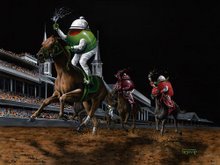

LESSONS IN CIVICS & THE CONSTITUTION – M:
Part A:
The Supreme Court, in its decision of the case of Erie Railroad v. Tompkins, in 1938, overturned the Swift v. Tyson decision of 1842 by stating: In the Erie case, Justice Brandeis wrote: “Except in matters governed by the Federal Constitution or by acts of Congress, the law to be applied in any case is the Law of the State . . . There is no Federal General Common Law.” Take note of the exception. The court has excepted matters governed by the constitution and acts of congress from being governed by State Law. Judge Henry J. Friendly of the United States Court of Appeals for the Second Circuit gave the following insights into the significance of this decision:
“The clarion yet careful pronouncement of
Just as Federal do not conform to State decisions on issues of property for the States, State Courts must conform to federal decisions in areas where Congress, acting within powers granted to it, has manifested, be it ever so lightly, an intention to that end. “The Lincoln Mills doctrine (353
Professor Gilmore wrote: “The Federal giant is just beginning to stir with his long-delayed entrance we are, it may be, at last catching sight of the principle character.”
QUESTION: What, do you suppose, is the nature of the right, and what is the source Judge Friendly is referring to, that caused the
QUESTION: Who or what, is the “principle character” that Professor Gilmore refers?
Remember, Justice Story said in the DeLovio case that the jurisdiction of Admiralty, as to contracts, depends upon the subject matter and the nature of the cause! In a book entitled “The Law of Bills, Notes, and Cheques”, Melville M. Bigalow, who has a Ph. D. from Harvard, said in 1900: “We are concerned in this book with a branch which deals with the law of bills, notes, and cheques. This branch of the law merchant has retained throughout its life, to the present day, its essential characteristics, clearly marking it off from the Common Law . . . The term Law Merchant at the present time usually suggests the law of bills, notes, and cheques. The time came when it must take its place, even if piecemeal by the side of the Common Law, and of Admiralty and Equity, in the jurisprudence of
And, from the “Handbook of the Law of Federal Courts” states that in the case of Clearfield Trust Co. v. United States, 1943, 63 S. Ct. 573, the court held that: “The rights and duties of the United States on commercial paper that is of issue are governed by Federal rather than local law. This does not mean that in choosing the applicable Federal rule the courts may not occasionally select State law. But it was thought that such a course would be singularly inappropriate in the
Next Week, September 25th, I will post part B of Erie Railroad v. Tompkins

“Abouna” Gregori













|